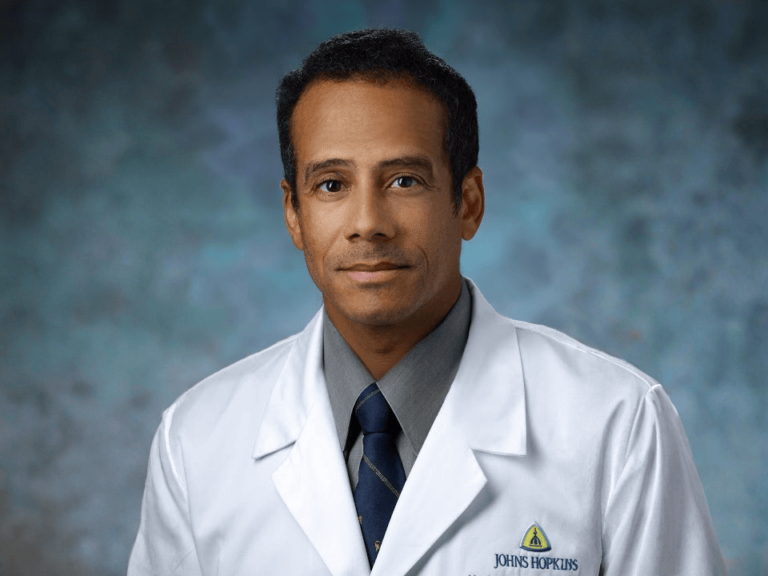Susan Love, breast oncologist, founder of the breast cancer advocacy movement, and chief visionary officer of the Dr. Susan Love Foundation for Breast Cancer Research, died July 2.
An obituary written by Fran Visco, president of the National Breast Cancer Coalition and a member of its Board of Directors, appears in this issue.
The following articles in the Cancer History Project include a 2021 conversation with Love about the founding of the breast cancer advocacy movement, and an In Brief item reporting Love’s marriage to the surgeon Helen Cooksey.


- Susan Love on breast cancer activism in the 1990s
By Cancer History Project | Oct. 22, 2021
When Susan Love joked that a group of breast cancer advocates in Salt Lake City should march topless to George H. W. Bush’s White House, she didn’t expect to be taken seriously.
“When we said, ‘We should march topless on the White House,’ they were ready,” Love, founder and chief visionary officer of the Dr. Susan Love Foundation for Breast Cancer Research, said to The Cancer Letter. “The idea of all these topless women marching on the White House was enough to launch the breast cancer advocacy movement.”
It was June of 1990, just after Love published her book, “Dr. Susan Love’s Breast Book,” which walks its readers through the radical changes in the science of breast cancer at the time. She was on a book tour that landed her in Salt Lake City, where around 600 people showed up to hear her speak.
“What I really learned when we were at this meeting in Salt Lake City, is if you have the right answer at the right time, people are ready. They were ready to do something,” she said. “It was a time when we had science, and we had the NSABP doing research and randomized trials, and we could start to change how we treated breast cancer based on data, which was really something new and novel.”
The science and the culture of breast cancer activism was changing.
“We had a randomized controlled trial comparing wide excision or lumpectomy and radiation, to mastectomy. The fact that women were willing to be randomized as to which they got, by itself, was pretty remarkable,” Love said. “It turned out that lumpectomy or wide excision, followed by radiation, was just as good as mastectomy, much to everybody’s amazement.”
Breast cancer advocacy of earlier years—marked by building awareness, something critics called “pinkwashing”—was less political and not nearly as confrontational, Love said
The AIDS activists had inspired a new kind of activism, and breast cancer activists took note. The National Breast Cancer Coalition, an umbrella group that revolutionized the goals and tactics of cancer patient advocacy, was emerging, Love said.
“This was, ‘We want to be at the table. We want to be making the suggestions and making sure they happen, not just marching around wearing pink,’” she said. Also, most of these activists were not physicians or scientists, or involved in treating or studying breast cancer at all.
“They were regular people who had had breast cancer, or their mother had had it, or their sister had had it, and they were eager to hear the science and they were eager to look to how we could end it,” she said.
“Women didn’t know that much about breast cancer, and we wanted them to be able to represent what was going on,” Love said. “We started educating them in a program called Project LEAD, and we got different scientists to come, and over a weekend, we would educate them on breast cancer.”
- Breast surgeon and advocate Susan Love weds surgeon Helen Cooksey in San Francisco
By Cancer History Project | Feb. 20, 2004
Susan Love, NCAB member, author, and a founder of the breast cancer advocacy movement, wed her partner of 21 years Helen Sperry Cooksey in San Francisco on Feb. 15, four days after San Francisco Mayor Gavin Newsom directed the city to legally marry same-sex couples.
Cooksey, a general surgeon at the Jeffrey Goodman Clinic of the Gay and Lesbian Center in Los Angeles, Love, and their 15-year-old daughter Katie stood outside City Hall for eight hours last Sunday with hundreds of other couples.
Late in the afternoon, Love and Cooksey were married under the Rotunda with Katie as witness and Michael Farrah Jr., senior advisor to the mayor, officiating. “I don’t know what the courts will do, but it sure felt like a Rosa Parks moment,” Love said. “It is important for gay people to be able to get married and we sure are happy to have the opportunity.” The family lives in Pacific Palisades, CA.
The history of oncology nursing at Johns Hopkins Kimmel Cancer Center


- Podcast: 50th Anniversary of the Johns Hopkins Kimmel Cancer Center Podcast Series – Oncology Nursing
By Johns Hopkins Kimmel Cancer Center | July 5, 2023
Bill Nelson, director of the Johns Hopkins Kimmel Cancer Center, speaks with Donna Berizzi, senior director of oncology nursing at Johns Hopkins, about the past, present and future of oncology nursing.
This column features the latest posts to the Cancer History Project by our growing list of contributors.
The Cancer History Project is a free, web-based, collaborative resource intended to mark the 50th anniversary of the National Cancer Act and designed to continue in perpetuity. The objective is to assemble a robust collection of historical documents and make them freely available.
Access to the Cancer History Project is open to the public at CancerHistoryProject.com. You can also follow us on Twitter at @CancerHistProj, or follow our podcast.
Is your institution a contributor to the Cancer History Project? Eligible institutions include cancer centers, advocacy groups, professional societies, pharmaceutical companies, and key organizations in oncology.
To apply to become a contributor, please contact admin@cancerhistoryproject.com.








